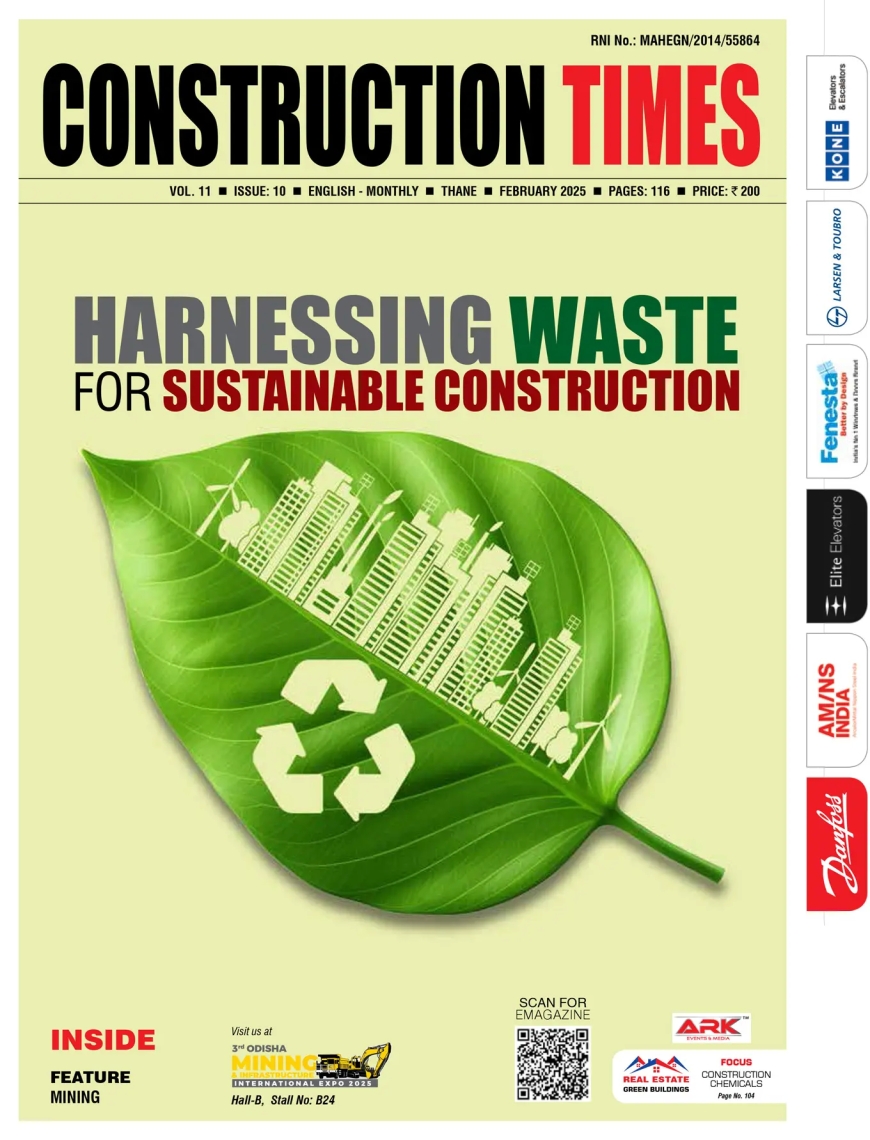Kerala's Start-up Ecosystem the Next Growth Engine
With a conducive environment for entrepreneurs to grow and flourish, the start-up ecosystem in Kerala is catching up with neighbouring Karnataka. Primarily known for tourism, the state currently hosts more than 2,200 start-ups, with over 36% of these in Kochi alone. The CREDAI-ANAROCK report 'Kerala - Unravelling the Growth Trajectory' unveiled at the CREDAI Kerala

With a conducive environment for entrepreneurs to grow and flourish, the start-up ecosystem in Kerala is catching up with neighbouring Karnataka. Primarily known for tourism, the state currently hosts more than 2,200 start-ups, with over 36% of these in Kochi alone. The CREDAI-ANAROCK report 'Kerala - Unravelling the Growth Trajectory' unveiled at the CREDAI Kerala Statecon - 2020 held in Kochi recently, confirms that the state now ranks among India's top 5 start-up incubation hubs along with Gujarat, Karnataka, Odisha and Rajasthan.
The report finds that in terms of overall start-up funding in Kerala, both 2018 and 2019 saw significant growth over the previous years.
Anuj Puri, Chairman - ANAROCK Property Consultants says, "In just the first nine months of 2019, the state received approx. USD 44 mn in funding spread across 13 deals - a notable increase of 18% over 2018. Among the top investors were Unicorn India Ventures, India Angel Network Fund, Malabar Angels, Sea Fund, Jose Pattara and Flat6Labs Bahrain." Relatively low cost of operations, skilled manpower availability, modern technology use and highly supportive government policies such as Kerala Start-up Mission (KSUM) have been key factors driving Kerala's start-up revolution.
Krishna Kumar - Chairman, CREDAI Kerala says, "Kerala is one of the most literate and skilled states in India. Schools, colleges, start-up incubators and government institutes have been very efficiently linked into an ecosystem that provides ample opportunities for the growth of entrepreneurship and innovation.”
Home to IIM and National Institute of Technology, Kozhikode has emerged as a preferred start-up destination in recent years. The city hosted nearly 10% of the state's start-ups in 2019, compared to 6% a year earlier.
Indian Women Prefer Housing for Investment
In the latest Anarock-LIC Housing Finance Ltd. Consumer Sentiment survey, (18% participants were women) nearly 57% women respondents preferred real estate as an investment asset class, followed by 28% for stock market, 11% for FDs and a mere 4% for gold. The survey also reveals that among those looking to buy property from investment perspective, nearly 45% women home seekers would sell the property after appropriate appreciation while 32% would prefer to earn a steady rental; only 23% are looking to build it as an asset for the future. Merely 18% would prefer a new launched property, 58% would opt for those that will be ready within a year and 24% would buy ready homes. 63% women prefer 2 BHKs followed by 23% preferring 3 BHKs & merely 14% seeking 1 BHKs. Contrary to the increasing conservative preference for compact homes, the Indian millennial woman does not want to compromise on property size and among those seeking 2BHKs, more than 50% are seeking large-size ones.
There are also many benefits that women can avail in India by buying and registering a property in her name. Lower stamp duty charges, low home loan interest rates and tax deductions are some of the benefits they are entitled to while buying a property.
These trends vouchsafe that women are emerging as a critical homebuyer segment in India - not just a 'niche' segment - and that marketers and developers must re-strategize their business approach to include them as a major target audience.
Indian CRE Joins Asia's Big League
India's commercial real estate (CRE) sector continues to hog the headlines. Even as the residential market continues to struggle, commercial spaces continue to see large investment inflows, a steady rise in rentals and falling vacancy levels - all backed by extremely robust demand. To this contrasting backdrop of asset classes, a significant trend being seen in the commercial office space is the growing popularity of strata sales with both investors and developers. Given the trends, it is safe to say that Indian strata-sale CRE will soon be playing in the Big League of Asia's hottest commercial markets. The horizons have changed, but the sky is still the only limit for opportunities in Indian real estate investment. The investment climate of India's commercial real estate market has not attained the maturity levels of Singapore and Hong Kong. However, the changing dynamics are strongly indicative of an ongoing overhaul. While HNIs and NRIs continue to rely on the Indian real estate sector, their investment preferences are changing.
The Indian luxury housing segment fetched handsome returns in the 2000-2009 period. Today, only commercial office and retail assets can match those ROI levels. As per ANAROCK research, the average rental yield for residential properties continues to languish at an uninspiring 3%. In sharp contrast, Grade A commercial properties generate 7-9% yields while non-Grade A assets potentially deliver 9-10%.
The Indian strata sale market is becoming increasingly attractive even for smaller investors. A well-chosen CRE play in a tier 2 city can begin at as low as INR 10 lakh. The upper limit for investing Grade A assets in the metros is, of course, somewhere in the stratosphere. However, HNI investors have sensed that these properties are the Next Big Thing on the Indian real estate investment horizon and are moving in even as leading developers have begun putting as much as 25-40% of their commercial stock up for strata sale, says Bappaditya Basu, Chief Business Officer - ANAROCK Commercial.
Hits: 61
















